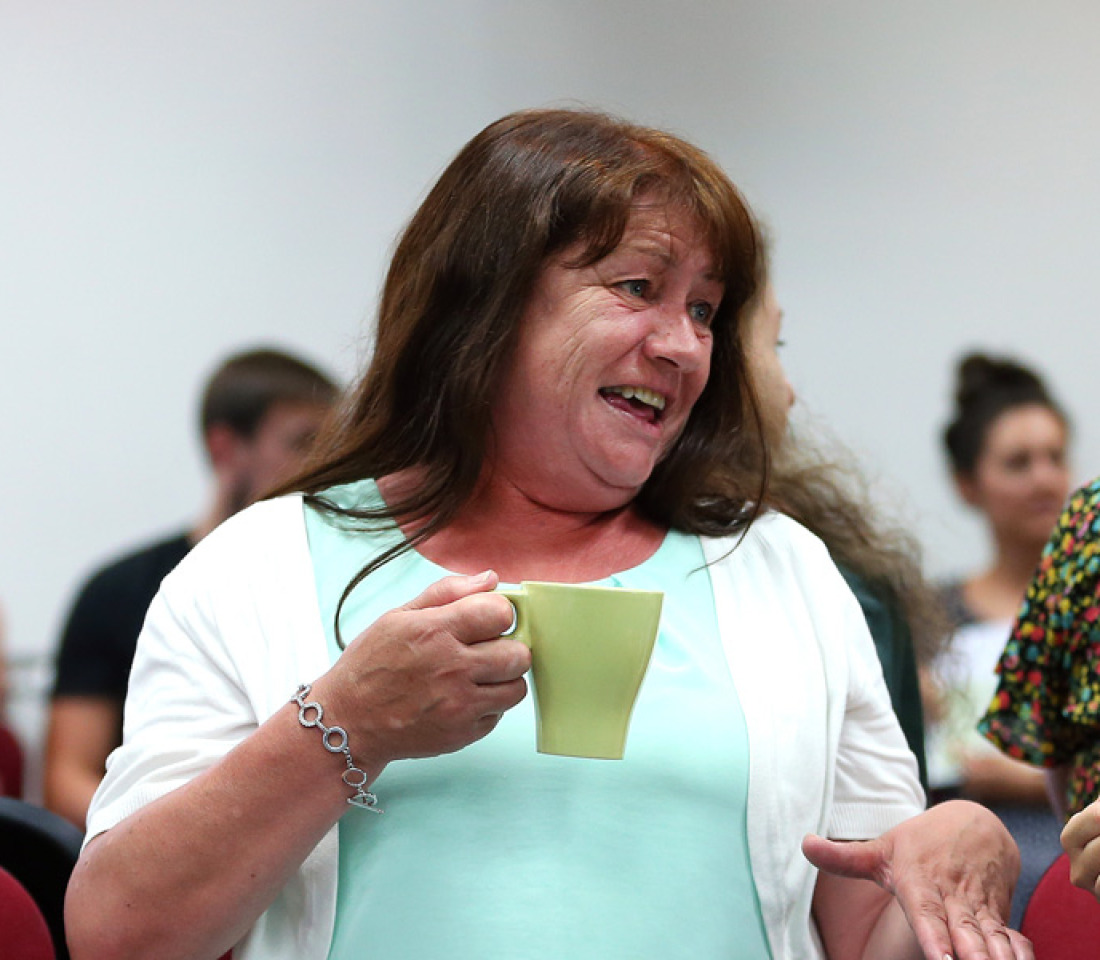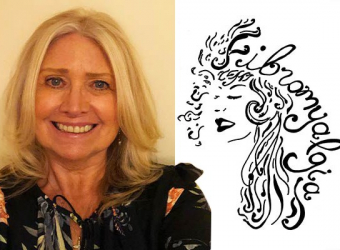
Guest post: A deep dive into OCD
Obsessive Compulsive Disorder is a misunderstood condition - it's not all about cleanliness

‘Look at Sarah putting our coats away, I swear she is SO OCD about her house!’ You might have heard someone say something similar to this at some point. The problem with this sentence is that it defines OCD as something that it isn’t. You can’t be OCD about a thing. And preferring a tidy or clean environment is not a symptom of Obsessive-Compulsive Disorder. AND OCD is not just about cleanliness…
OCD is a misunderstood mental health condition, which is why in this article, we’re going to break down exactly what OCD is, and how to get treatment.
So what is OCD?
Obsessive-Compulsive Disorder (OCD) is a mental disorder that causes the individual to have obsessions that cause anxiety. Once an obsession comes into the mind, the individual might compulsively act on a behaviour or ritual designed to ease the anxiety. This cycle frequently repeats itself.
For example, someone with the most commonly known type of OCD (and most represented in media), Contamination OCD, might experience an obsession around their remote control not being clean, compulsively washing their hands and the remote and surrounding surfaces multiple times to ease their anxiety.
On that note, it’s worth mentioning that there are many different types of OCD. We can determine the type of OCD by looking at the obsessions the sufferer experiences.
When someone with OCD exclusively experiences obsessions around cleanliness, this could be diagnosed at Contamination OCD. A sufferer who experiences obsessions around the meaning of life and reality might be diagnosed with Existential OCD. Knowing the type of OCD the sufferer is experiencing helps to avoid triggers and offers a guideline for treatment, which we’ll talk about later in this article.

What causes OCD?
While OCD has no single cause, a variety of psychosociological and biological factors have been linked to OCD.
Most OCD types have triggers and behaviours that manifest as this cycle:
- Have an intrusive thought or an ‘obsession’
- which causes anxiety.
- Soothe the anxiety by doing a behaviour or ritual, otherwise known as a compulsion
- which brings temporary relief from the anxiety.
An example of this cycle for someone with relationship OCD might be:
- ‘What if my family starts disapproving of my relationship?’
- ‘This thought is giving me an overwhelming amount of anxiety’
- ‘I’m going to avoid contact with them for a while.’
- ‘Now that I don’t have to face my fear, I feel less anxious.’
This is an example of ‘avoidance behaviour’.
Now let’s talk about the different types of behaviours we encounter with OCD:
- Checking: This is the need to check things multiple times to ease anxiety. One might experience an Obsession over a gas explosion, and to ease the anxiety, they might leave the house and come back multiple times to turn the gas on and off to reassure themself their home won’t explode.
- Avoidance: Some people with OCD may respond to their obsessions with avoidance. For example, a Sensorimotor OCD obsession might be over eye contact, how long it’s held for and how often we blink while holding eye contact. This obsession might be met with avoidance, where the sufferer refuses to be in social interactions so that they don’t experience the anxiety when there is eye contact.
- Symmetry and Ordering: This is the need for items and belongings to be symmetrical and/or in order. Someone with OCD might experience anxiety when things aren’t in order, compulsively needing to rearrange things or make things symmetrical.
- Ruminations and Intrusive thoughts: We all have intrusive thoughts from time to time, but someone with OCD might experience them more frequently and need to perform a behaviour or compulsion in order to move on from the thought.
How do I know if I have OCD?
The only way to know if you have OCD is to talk with your healthcare provider about your symptoms and experiences. Your healthcare provider should be able to offer you information about your symptoms and diagnose you.
Having OCD is not comparable to insisting on having a clean home. OCD causes sufferers to feel paralysed by their obsessions and compulsions.
OCD treatment
If you get diagnosed with OCD, you can start to consider different treatment options with your healthcare provider. Just as there are many types of OCD, there are also many types of treatment for OCD. Certain treatment plans work well for some and not-so-well for others. The success of treatment depends on the type of OCD, the severity, and other psychosociological factors.
Finding a successful treatment plan may take some time, it may even take a few different attempts. Patience is key when treating OCD. If a course of treatment isn’t working for you, it’s vital to keep open communication with your healthcare provider so that they know when to try something else.
Medication treatment for OCD
Medication isn’t always necessary to treat OCD, but in some instances, your doctor may recommend it. The most common medications used to treat OCD include SSRIs (selective serotonin reuptake inhibitors), TCAs (tricyclic antidepressants), and antipsychotics.

Selective Serotonin Reuptake Inhibitors
Typically, people with OCD have lower levels of serotonin, a neurotransmitter that sends messages from the brain to the rest of the body. Once the messages have been received by the body, the body reabsorbs the serotonin.
SSRI medication essentially stops the reabsorption of serotonin in the body after the messages have been received. This results in more serotonin being available for the brain. SSRIs are currently the most commonly used medication to treat OCD.
While SSRI medication can start to have an effect after 1-3 weeks, it’s worth noting that it can take up to 12 weeks before it becomes effective. If after 12 weeks this medication is not having a positive effect, it could be worth discussing different options with your healthcare provider.
Tricyclic antidepressants
Tricyclic antidepressants (TCAs) are usually only recommended after trying other treatments. While TCAs can be effective for certain people, they have been known to have negative side effects such as insomnia, panic attacks, aggressive thoughts and impulsiveness. If you’re on a course of TCAs and experience any of these side effects, remember to speak with your healthcare provider. We all have very different bodies and respond differently to medication.
Antipsychotics
Antipsychotics are usually taken with SSRIs to enhance their positive effects. As we’ve already mentioned, OCD comes with a variety of symptoms that are different from person to person. OCD can also be experienced alongside other conditions, like tics. For these individuals, taking antipsychotics alongside SSRI medications can make the SSRIs more effective.
PLEASE NOTE: Medication must only be taken under the guide of a doctor or licensed healthcare provider. Always communicate side effects to your healthcare provider. Never take medication without doctor approval first.
Therapy treatment for OCD
Not-so-fun fact! Studies have shown a 90% relapse rate in OCD patients who only take medication as OCD treatment without any form of therapy treatment alongside… Therapy is pretty fundamental in treating OCD!
The most common form of therapy treatment for OCD is a mixture of CBT (Cognitive Behavioural Therapy) and ERP (Exposure Response Prevention).
Cognitive Behavioural Therapy is a very structured, short-term therapy treatment that focuses on ‘here and now’ issues, as opposed to focussing on the past. When practised with a licensed professional, CBT does not have any negative side effects or risks.
Exposure Response Prevention is a therapy that exposes the patient to triggers that cause their anxiety. The therapist will show the individual images or objects, revisiting anxiety-inducing thoughts and situations. The ‘Response Prevention’ part of ERP teaches the patient new ways to cope with their anxiety without acting on the usual anxiety soothing compulsions. While this is practised in therapy with a professional, eventually, the patient will learn how to practice ERP exercises on their own to help manage symptoms.
If you’re reading this in 2021, in the midst of the COVID-19 pandemic, you might be thinking ‘in-person therapy? No thanks!’ or it might not be possible to visit a therapist where you live at the moment.
The good news is, therapy treatment for OCD is very do-able online. In fact, research continues to show us that there are many benefits to online therapy treatment for people with OCD.
Self-help techniques
Someone suffering from OCD should really speak with their doctor about formal treatment. Doctor appointments can take time though, so in the meantime, there are things that we can do from home to help manage OCD symptoms.
Self-help techniques include things like exercising, working on stress-management, meditation, relaxation exercises, breathing exercises, and much more.
Getting enough sleep is hugely important to manage stress, help the body to recover from exercise and a lot more. Humans generally require 7-8 hours of sleep in order to thrive, so if we know we aren’t getting enough sleep, this is a great place to start to help manage OCD symptoms and improve overall health.

Recovery is possible!
It can be frustrating to be going through treatment that just isn’t working. If you or a loved one is on a treatment plan that isn’t working, remember to engage in open discussions with healthcare providers! Recovery is possible, it might just take some trial and error to find what works.
Be sure to reach out to Impulse Therapy if you have any questions about OCD and symptom management. You can reach them on Instagram, Facebook or Twitter.
The Brain Charity also provides free counselling and psychotherapy – face to face, via video call or over the phone – to anyone with a neurological condition and their family members, friends or carers. Click here for more information on how to self-refer for counselling at The Brain Charity.
About the author
Gabie Lazareff is a certified health coach, yoga teacher and freelance nutrition & wellness writer. After years of navigating the messy waters of mental health, her mission is to share her experiences and advice with others.
Categories: Advice, Guest blogs
Published: 22 March 2021
















